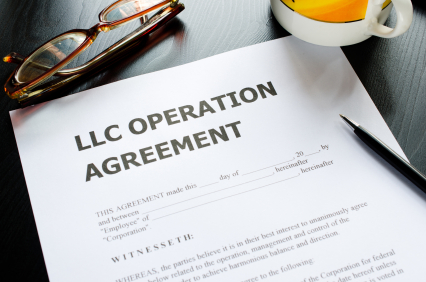Is Becoming an LLC Worth the Hassle?
 You've heard a lot of fuss about turning your company into an LLC, but you're having trouble making the final decision. Maybe you don't know enough about LLCs, or you're not familiar with what options are available for your company. In either case, we've got some answers for you.
You've heard a lot of fuss about turning your company into an LLC, but you're having trouble making the final decision. Maybe you don't know enough about LLCs, or you're not familiar with what options are available for your company. In either case, we've got some answers for you.
What is an LLC?
LLC stands for "limited liability company". In terms of structure, LLCs combine aspects of both corporations and partnerships ‒ like corporations, they involve limited liability for their members; like partnerships, they operate with more flexibility, and profits and losses are reported on personal rather than corporate tax returns (that is, they "pass through" to the owners). In this way, LLCs are said to blend the best features of partnerships and corporations.
Even so, there are key advantages and disadvantages to registering as an LLC. One of the major benefits of an LLC is the personal protection granted to members. With limited liability, owners are not held responsible for costs acquired by the company. Also, the pass-through taxation of LLCs makes filing taxes a fairly easy process, as tax returns are completed in the same manner as they would be for sole proprietorships. Another plus of owning an LLC is the unlimited potential for company enlargement with regards to membership or investors. Nonetheless, there are some drawbacks to becoming an LLC. For one, registering as an LLC requires a bit more paperwork than is required for a sole proprietorship.
What is a sole proprietorship?
A sole proprietorship is an individually-run business that has not registered with the state as a legal entity (a corporation, partnership, or LLC). Here, the owner is entitled to all profits and is accountable for all liabilities and losses. For tax purposes, sole proprietorship is the default business type – in other words, until someone registers their company as a corporation, partnership, or otherwise, all company taxes must be reported on individual income tax returns.
Sole proprietorships are often considered the simplest business structures to operate. However, like LLCs, they have their pros and cons. Compared with other business types, starting a sole proprietorship is certainly less costly and involves documentation. Similarly, it is relatively easy to complete taxes for this type of business, as you will only need to file one tax return for both you and your business. But as the owner of a sole proprietorship, you are exclusively responsible for whatever costs, debts, or claims your company may incur. This means that, in the event of a legal issue or obligation, your personal assets can be used to satisfy unpaid dues. Furthermore, if you later want to expand your business, whether this means adding a partner or finding investors, you will need to register as a different kind of business structure, such as an LLC. It should thus be emphasized that the amount of risk to the owner increases significantly in a sole proprietorship. The sole proprietor accepts full financial responsibility for loans, property damage, and workers injuries or deaths. This should be taken into careful consideration when weighing the pros and cons of this option.
Can't I just register for a DBA?
A DBA ("Doing Business As") is simply a title given to your company that is different from your own personal title. If you own a business but do not want to advertise and perform services under your name, you may wish to register with a local government agency for the rights to do business under another label. This fictitious or assumed name does not necessarily imply legality of the entity. While assigning a DBA might improve the perceived legitimacy of your company, it does not provide any indication of the company's tax treatment or its liabilities. For this reason, those seeking limited liability or a specific tax situation should register their company accordingly.
Can an LLC have a DBA?
Not exactly. If you are starting or currently own an LLC and would like to identify your products or services under a name other than the legal designation of the company, you should file a Certificate of Assumed Name with the Secretary of State, Department of Corporations, or city clerk, depending on the state in which you reside. After doing so, you will be able to conduct business under both the assumed name and the original, legal name.
Related post: Finding the Perfect Name for Your Painting Company